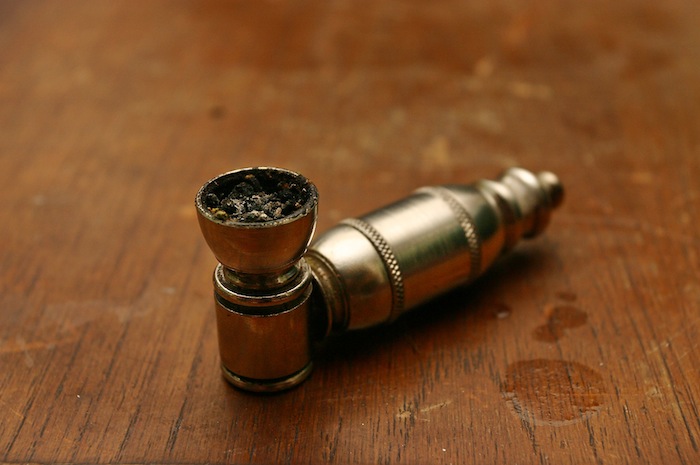Marijuana Rehab for Women
 Marijuana has long been an equal-opportunity drug, nearly as common among women as among men. This is hardly surprising, considering what the drug does: Marijuana offers a palliative and relaxing experience to suit the mind and body. As neither gender is a stranger to the scourge of daily stress, it only stands to reason that marijuana should be as popular as it is. When it comes to treatment, however, women and men respond differently to different approaches.
Marijuana has long been an equal-opportunity drug, nearly as common among women as among men. This is hardly surprising, considering what the drug does: Marijuana offers a palliative and relaxing experience to suit the mind and body. As neither gender is a stranger to the scourge of daily stress, it only stands to reason that marijuana should be as popular as it is. When it comes to treatment, however, women and men respond differently to different approaches.
Marijuana Initiation and Recovery
In order to effectively develop treatments for addiction, researchers conduct studies to determine when people begin using drugs, and why they started using drugs in the first place. Many of these studies suggest that women differ from men in significant ways, and these differences could have a large role to play in the recovery process.
Both men and women seem to begin using marijuana early in life. For example, a study in the journal Social Work Research suggests that teens in grades 7 through 12 begin using marijuana and alcohol, especially if they have low levels of parental supervision, and both males and females begin using at approximately the same time if they have the same background. Using marijuana, or any other drug, at such an early age is incredibly dangerous. The adolescent mind is constantly growing and changing, developing new connections in some areas while connections to other areas fade. Some adolescents feel an incredible response to the drugs they take, due to the changes taking place in their brains, and they simply cannot recover from the experience. The memory of the high is hard to forget, and these addicted people may spend the rest of their lives chasing a feeling that has become unattainable.
 Some people can use marijuana from time to time and never develop secondary addictions as a result. Researchers writing in the journal Addiction attempted to determine what made people continue to take marijuana, when their peers may have stopped. These researchers found that college students who spent time with their friends, and who felt that parties were important, were more likely to use marijuana than students who felt good grades and attending classes were important. This seems to suggest that ongoing drug use might be social in nature.
Some people can use marijuana from time to time and never develop secondary addictions as a result. Researchers writing in the journal Addiction attempted to determine what made people continue to take marijuana, when their peers may have stopped. These researchers found that college students who spent time with their friends, and who felt that parties were important, were more likely to use marijuana than students who felt good grades and attending classes were important. This seems to suggest that ongoing drug use might be social in nature.
In a marijuana rehab program for women, therapists might attempt to address these issues by asking the women to discuss their first experiences with marijuana, and then determine if those pleasant feelings ever returned. Women might come to find that their subsequent marijuana use was less than pleasurable, and perhaps use might best be stopped as a result. Therapists might also help women to build up healthy relationships that do not include the use and abuse of marijuana.
In therapy, women might learn to:
- Communicate their friendship needs clearly
- Identify friends who are caring, not friends who simply want to get high
- Look for community groups or hobby-based groups that could be sources of new friends
- Turn down invitations to use drugs, even when those invitations come from friends.
These lessons reach to the core of how the addiction developed, and as a result, they can be very meaningful for women in recovery. With these new skills, they may not need to lean on drugs when times are difficult and the urge to use seems to grow.
Therapy Types
It’s long been assumed that people who are in the throes of addiction need to be confronted with the harsh reality of their addiction, and the damage it can cause, so they will be motivated to accept help and move forward with their lives. There is some evidence that some people who are addicted do benefit from this sort of combativeness, especially in the beginning of their treatment programs. For example, a study in the journal Substance Use and Misuse attempted to determine how addicted people responded to comments about “bad things” that would happen to them if they did not maintain sobriety. Of the 108 people studied, people who received more confrontation had more positive views about their relationships with those who did the confronting. In this study, it seems that being combative works to motivate recovery.
Free. Easy. Confidential.
Call Today: 1-800-469-9124
Who Answers?We have caring admissions counselors available 24/7
Unfortunately, there is some evidence that suggests that women, in particular, do not appreciate this confrontation in their treatment programs. Since most programs are built upon confrontation, this might explain why women don’t complete programs as well as men do. A study in the Journal of Substance Abuse Treatment reinforces this sad fact. In this study, women were facing significantly more severe drug-related problems when they entered treatment programs for addiction when compared to men yet they had lower treatment completion rates when compared to men. These women needed more help, and they weren’t getting the help they needed.
Some researchers suggest that women recovering from marijuana addiction need treatments that are much more soothing and nurturing, rather than combative and lecturing. Therapists might accommodate this need by using a softer, subtler approach when working with women in one-on-one counseling sessions, allowing women to build up a relationship with the therapist before the hard work of recovery really sets in. Therapists might also accommodate this different mode of thinking by allowing women to spend more time in group therapy sessions. By using this technique, therapists allow women to form bonds with peers who are struggling with the same issues, and they have the opportunity to nurture others and be nurtured in return. For many women, this approach is much more conducive to long-term learning, and it might entice women to stay in treatment programs until they truly are well.
Support Group Participation
Addiction support groups form the cornerstone of many rehab programs. These support groups were initially designed to help people in recovery from addictions to alcohol, but over time, the methods have been proven useful in dealing with a wide variety of different drugs of addiction. Now, it’s common for women in recovery from marijuana addiction to participate in support groups with other women in recovery from addictions to this dangerous drug.
Support group formats can vary widely, and often, support groups are tailored to meet the needs of specific types of marijuana addicts.
For example, a woman might be able to addend a meeting for:
- Lesbian addicts
- Former military women who are addicts
- Women who are parents and addicts
- Atheist women addicts
While many rehab programs only offer one specific support group for women to attend, all of these options could be available for the woman to lean on in her community when her formal addiction rehab program has ended. For many women, this is a lifeline to sobriety.
Researchers writing in the Journal of Substance Abuse Treatment attempted to determine what made women who were in recovery from alcoholism continue to attend their Alcoholics Anonymous meetings. These results might also be applicable for women in recovery from marijuana, and they do show how important these meetings really can be.
Of the women studied:
- 28 percent attended meetings to ensure that a relapse to addiction wouldn’t take place
- 25 percent attended meetings because they were readily available
- 31 percent attended meetings for the opportunity to share
- 27 percent attended the meetings for support
As this study makes clear, many women find that they need support and ties with others as they heal, and for some of these women, AA meetings are the place to get that support. Interestingly, this same study reports that 20 percent of women who didn’t attend AA meetings didn’t attend because they felt as though they didn’t fit in with the group. Perhaps if these women had looked for tailored meetings in their community, they could have found a group that suited them a little better. Women in recovery, who mention disliking their support groups, should be encouraged to keep looking until they find a match that is appropriate and helpful.
Finding the Right Program
 Recovering from a marijuana addiction can be a difficult process, especially if addicted people don’t get help in formal rehab programs. According to a study published in the Journal of Abnormal Psychology, marijuana withdrawal symptoms can be as severe as nicotine withdrawal symptoms, with addicts reporting physical pain as well as an overwhelming urge to take the drug again, no matter the consequences. If addicted women attempt to stop abusing the drug on their own at home, they could simply be overwhelmed with cravings to use again, and those cravings could lock them in a cycle of addiction.
Recovering from a marijuana addiction can be a difficult process, especially if addicted people don’t get help in formal rehab programs. According to a study published in the Journal of Abnormal Psychology, marijuana withdrawal symptoms can be as severe as nicotine withdrawal symptoms, with addicts reporting physical pain as well as an overwhelming urge to take the drug again, no matter the consequences. If addicted women attempt to stop abusing the drug on their own at home, they could simply be overwhelmed with cravings to use again, and those cravings could lock them in a cycle of addiction.
Rehab programs for marijuana can help, as the women are pulled out of their normal routines and their normal friendship circles. The cues for marijuana use won’t be there, which might make the cravings easier to bear. This could allow the women to do the hard work of recovery, without constantly dealing with the pain and suffering of withdrawal.
All addiction recovery programs for marijuana aren’t created equal, however. Some programs claim to provide care just for women, but they cannot provide hard proof that the treatments they use for their female patients are dramatically different than the treatments they use on their male patients. Even programs that are just for women might not be the best choice, if the women don’t feel comfortable there. In order for the care to be effective, the woman simply must feel affiliated with others in recovery, and she must be comfortable with the surroundings in which she will receive care. It’s a personal choice that can’t be made by the woman’s family or friends. She must be allowed to voice her own opinion and have a say in her own care. Families that allow a woman to speak up in this way, and choose her own rehab facility, are going a long way toward giving that woman back the power she lost during her addiction.
Help at The Orchid
Dr. Karen Dodge has demonstrated conclusively that women prefer communal support when they are dealing with issues of addiction. Building upon that work, The Orchid was designed expressly to offer centering, healing and compassionate approaches that cater to the needs of women. The umbrella term for this philosophy is “relational growth,” a label that effectively captures the interpersonal nature of recovery. When you attend The Orchid, you can expect to spend plenty of time learning life lessons, sharing stories, and otherwise drawing on the strength of addicts and professional therapists alike.
Getting started has never been easier. You can contact us privately by phone at 1-888-672-4435 or by filling out one of the contact forms on the website. From there, a conversation may be all that’s required to start you off on a life-altering course of recovery.
Further Reading